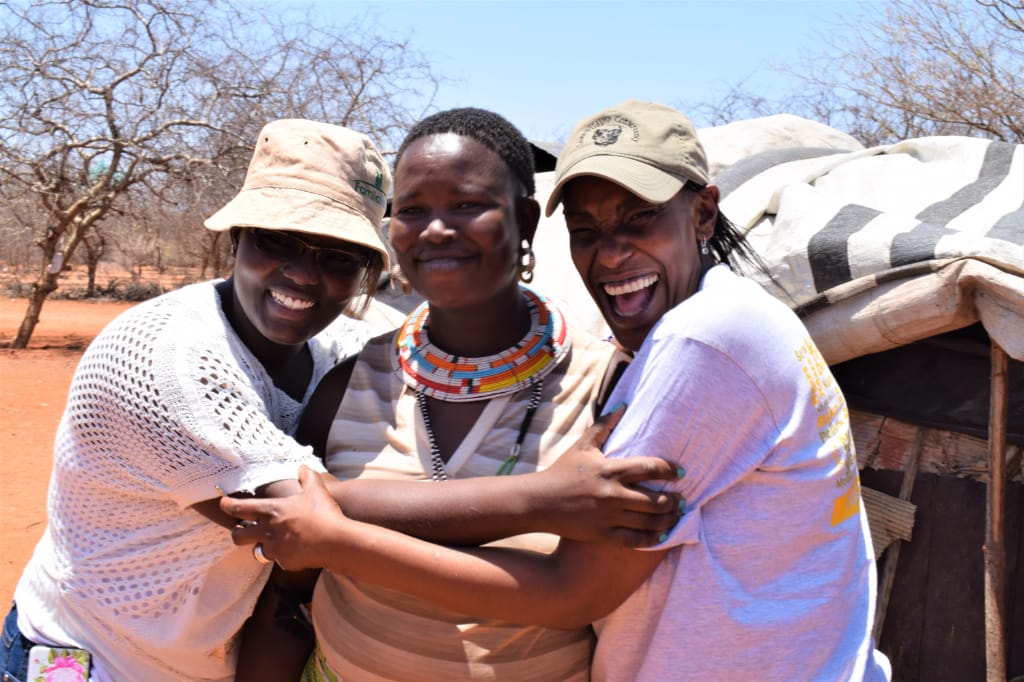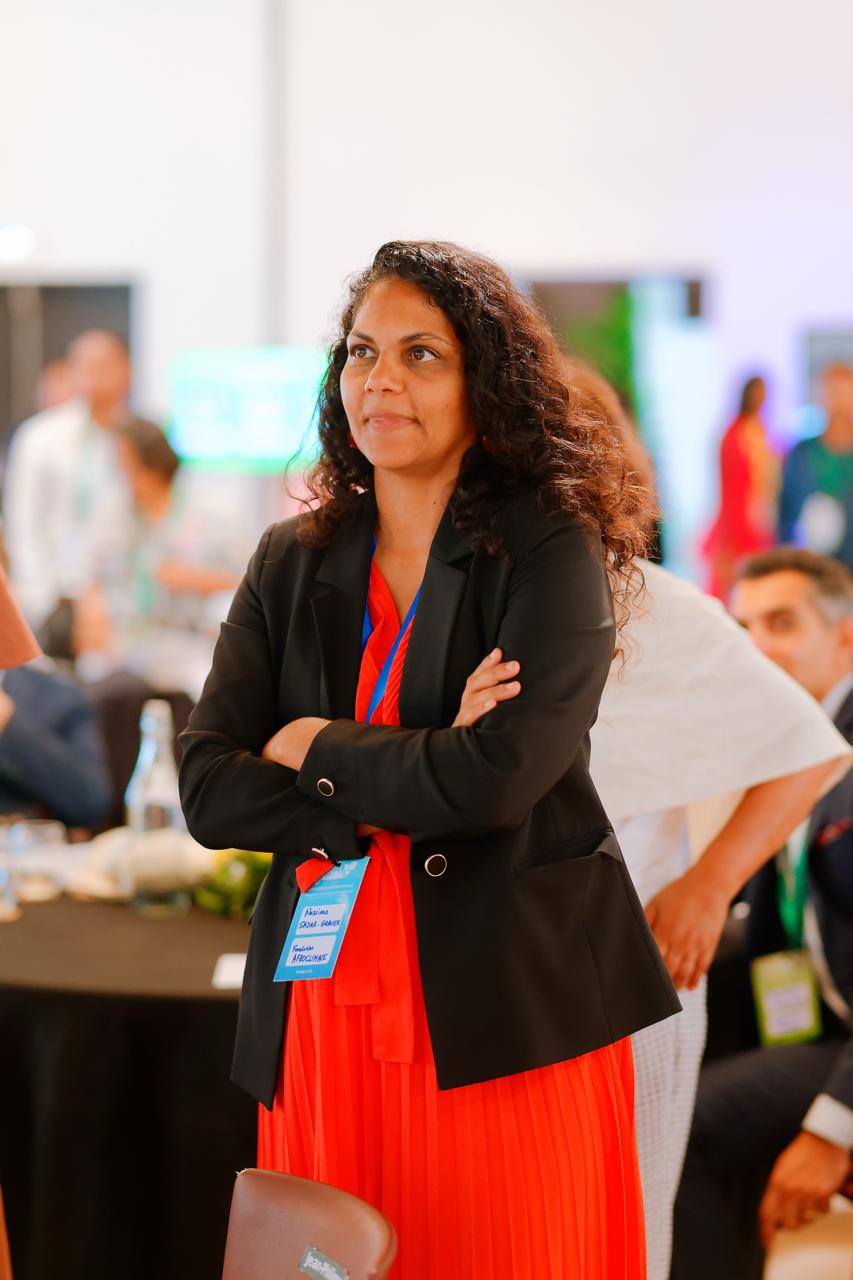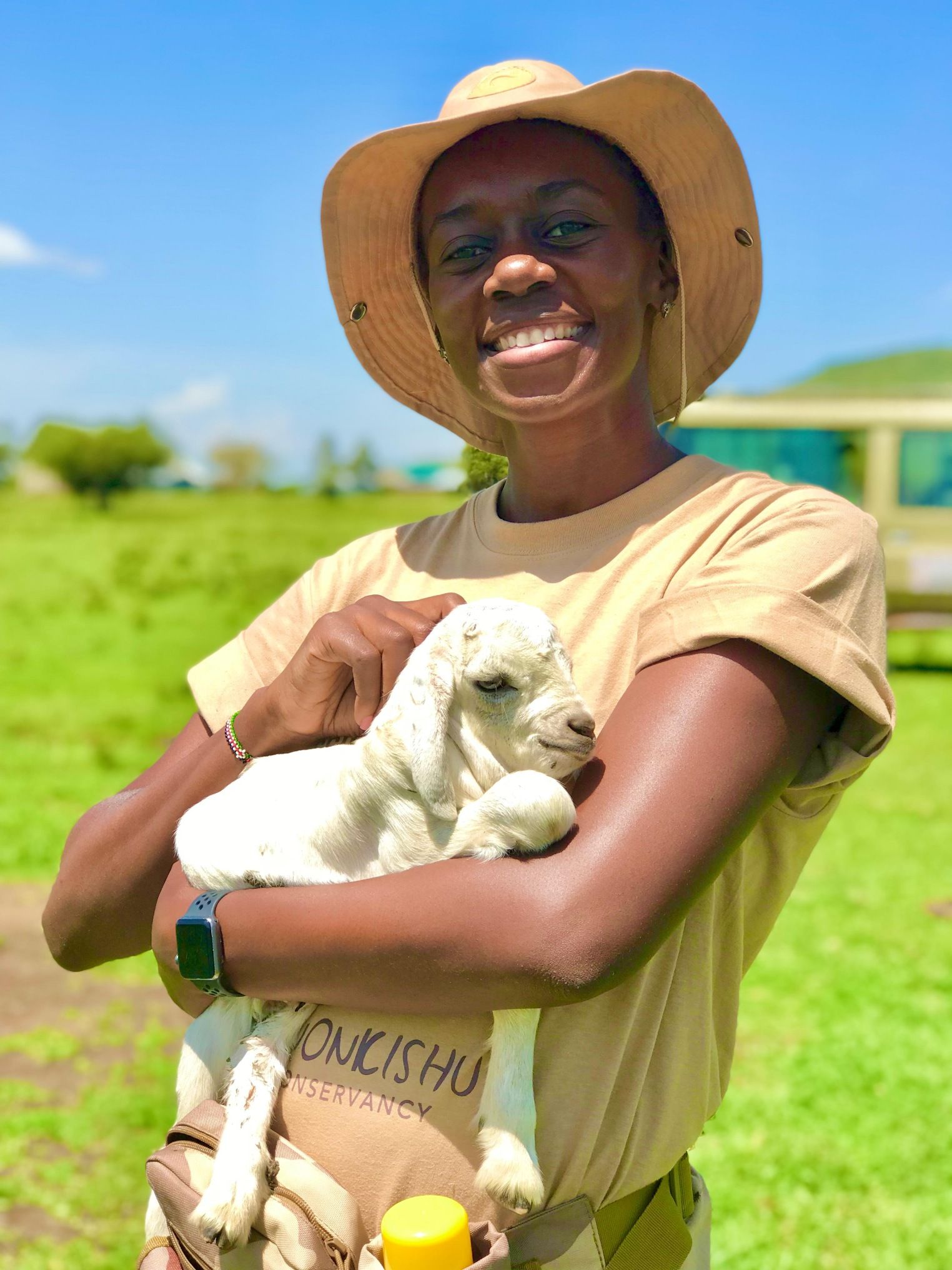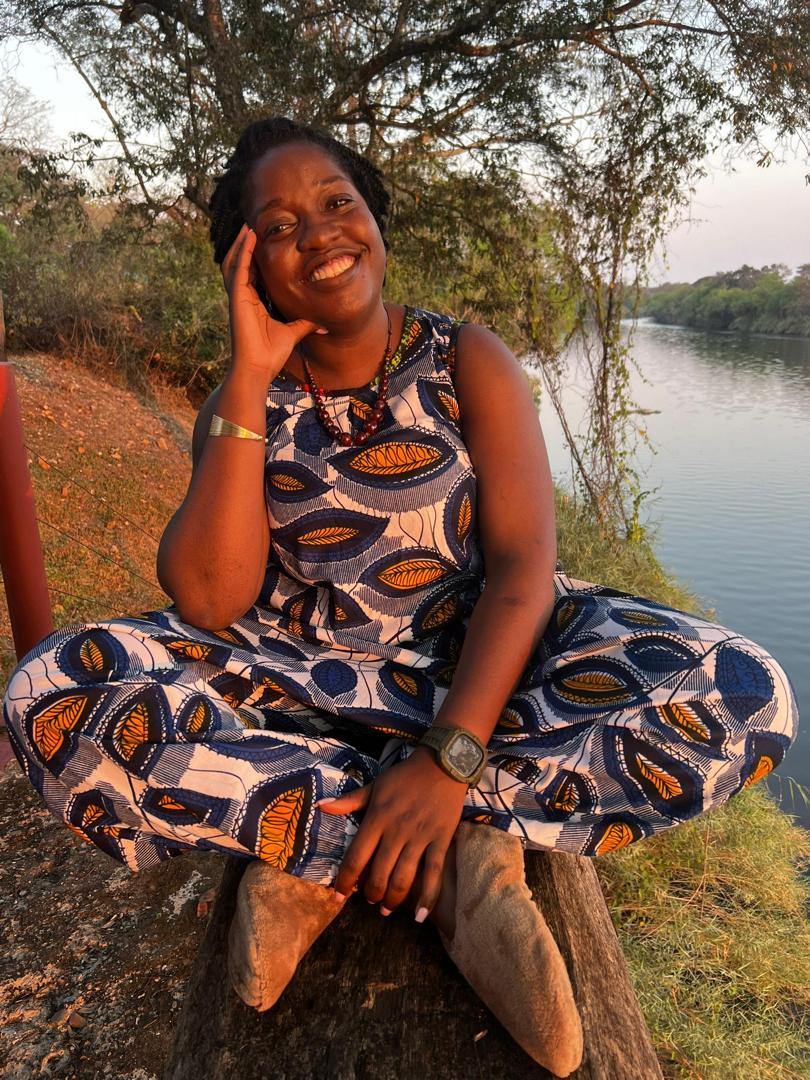I advocate for the understanding that generosity isn't just about grand gestures. It's about recognising the value of giving within our means and understanding that even the smallest acts can have a huge impact.
A conservation philanthropist and a communications specialist, Beatrice (Bea) Karanja embodies the spirit of a generous soul whose vision goes beyond conventional boundaries. She is dedicated to shaping a future where conservation and development coexist harmoniously for the benefit of the African continent.
Her journey has seen her contribute to renowned organisations like the BBC, Reuters, the African Wildlife Foundation, and UNICEF. Her diverse background and expertise have positioned her as a key advocate for African-led innovation and nature-based solutions.
She serves on the boards of the Mara Elephant Project and Natural State and leads Nature's Pitch, a foundation dedicated to elevating biodiversity protection while alleviating poverty.
The Women for the Environment 2023 Fellow shares insights from her journey with Damaris Agweyu.

Bea, what would you say is your core value?
It varies depending on the day, but, at its essence, it's as simple as "do no harm" – whether to other people, animals, or the environment. It's an umbrella statement that can be used in any context.
"Do no harm." But what if someone harms you? How do you respond?
This sounds corny, but there is wisdom that comes with age. If someone had caused me harm when I was 25, I would have likely spent a year plotting vindictive actions in my mind. Now, instead of an immediate emotional reaction, there is a more analytical response. I think about the source of the harm and my role in the situation. I seek to understand before I react.
Are you comfortable with ageing?
I love it! Of course, there's the scary part when you cross a line where you've lived more than you are going to. But when I reflect on what I have done with my life, I can't help but think, "Not bad."
Sure, I may not have a statue in my honour. I don't have children to carry on my name, but I've contributed my share within the timeline of the life I have lived so far.
Let's talk about the spirit of generosity that you embody so beautifully.
For me, generosity and the principle of "do no harm" are two sides of the same coin.
I recall times when I was queuing at the supermarket and saw someone in front of me with items worth less than 1000 bob; I'd quietly tell the teller to put that on my bill. I know that such a small act of kindness can make a difference. It may not be immediate, but one day, that person may remember it and pay it forward in their own way.
I often refer to myself as an "embryonic philanthropist," and I advocate for the understanding that generosity isn't just about grand gestures. It's about recognising the value of giving within our means and understanding that even the smallest acts can have a huge impact. Giving should be measured on the person's ability rather than the quantity they give.
The best moment for me being a Kenyan was during Kenyans for Kenya, where that spirit of collective generosity was evident. People from all walks of life, from the security guard to the CEO, came together to help those in need. If we could all do more of that, the world would be a much better place.
Is this belief system rooted in your upbringing, or did you develop it as you observed how the world functions?
It was embedded in me growing up. My father emphasised respecting every human being regardless of their station in life. My mother was the disciplinarian, but she did it in a way that made us understand that parity is very important. So, as an individual coming from that family, these values were ingrained in me.
And then I think, maybe even unconsciously, about the work that I did as a journalist, especially at the UN and Oxfam, covering the gnarliest parts of our beautiful continent and the most difficult stories but also trying to tell the right story and be the voice of the voiceless. This was another type of generosity. It's a common hidden thread in my personal and professional life that's been my North Star.

Tell me about your journey from journalism to conservationism.
I studied for a communication degree with a minor in criminology at Duquesne University in Pittsburg. My criminology class in university was like live CSI. It was remarkable and aligned with the journalistic side of me, which loves asking questions and piecing things together. At some point, I had ambitions of being the spokesperson for the FBI.
After university, my career path took me on many different journeys. From a journalist for BBC and Reuters to information communications for UNICEF, Oxfam, and Elizabeth Glaser Pediatric AIDS Foundation. I also did PR work for globally renowned and respected leaders like Dr Kofi Annan and Dr Mo Ibrahim.
While I was in PR, the conservation bug bit me. But to digress a bit, I think conservation comes very much from my Ugandan mum's side. She'd come to school randomly and tell the teachers about some fictitious emergency at home. And so my sister and I would get into the car. Bags had been packed. And into the bush we'd go. Sometimes without even telling my dad. Those moments spent in nature were incredible.
Just before I went to university, I’d spent several months interning for elephant researchers in Amboseli and Tsavo and was thrown into the deep end of the conservation challenges in Kenya. What struck me the most, and I truly didn’t understand, was why folks from different sectors weren't coming together to conserve and preserve. Conservation is not vacuous. So why do we always approach our professional lives in echo chambers? It was then that I started to work to bring the corporate and conservation sectors together.
What led you to philanthropy?
Having navigated the conservation circles, I realised that, as a Kenyan, I didn't have ownership of our national and natural heritage. Especially when it came to the management of it. But with the management comes the financial resources to back it up. And because we don't have the financial resources or no one's asked us if we do, the conventional route is seeking external funding. And with that comes the tie-in of, "Well, since it's my money, this is how it should be spent". I had the opportunity to break that cycle, and that's what I did.
This part of my journey has been equally interesting, mind-blowing, and hurtful all at once. Because there's a perception that this is an infinite resource. We are not at a level of giving infinitely because history has been against us, and we don't possess what's considered the strongest currencies globally.
Many would rather go into some money-making enterprise. But you chose conservation.
I'm aiming to reshape both the narrative around philanthropy and conservation. It's not just about having the white male figures overseeing it; it's about recognising the true stewards and custodians – the women drawing water from rivers, looking for firewood to cook, and young people trying to start community-based green initiatives. My organisation, Nature's Pitch, is about turning what they do into businesses and making them bankable. We focus on African-led, environmental-focused grassroots-level start-ups and African Women in STEMM. And we fund them through matching grants. If I get money from someone in the global north, I'll try to find an equivalent grant on our continent. So, proving that, yes, we can and do give money.
And then there's the question of nature. Everyone's always talking about "finteching" our way out of problems, but who is pitching for nature?
Being someone in the sector with the resources to drive sub-sectors, I want to show that we can talk about money and conservation simultaneously. We can challenge the status quo and take bold steps outside our comfort zones. We can cross the road into corporate corridors and have these frank conversations because how will they know unless we tell them? We need to break out of these silos to create a collective liberty that allows us all to thrive.
The powerful positions in the conservation space in Africa continue to be dominated by white males. What's your take on that?
We have to acknowledge the historical aspects that we can't change. However, when we have the opportunity, we must be bolder and more frank about our challenges. In my philanthropy work, I question why we must always go outside for funding. I challenge why the sector is financed, run, led and designed predominately by white men. It is changing but not fast enough, especially on the financial side of it.
This is our national heritage. Nobody has a right to exclude us. And you can't say you're holding it in perpetuity for Africans. No. People have to be called out.
But there's also a balance. Sometimes, you find yourself in a mental drama, fighting for justice, and other times, you are like, "Not your circus, not your monkeys, not today". Otherwise, you can go mad.
I do think that we have to have uncomfortable conversations about race as it is the elephant in the room (excuse the pun!), and unless we figure out how to mitigate this conflict collectively, it becomes like a global sector winch fest because "black people are always complaining". So now I'm like, "What's your version of the story? How have you experienced it?" Because it is a social construct that has affected everyone. I believe it's time for others to take on the responsibility of learning about race, exploring history through books and documentaries, and recognising its impact on individuals physically, mentally, and spiritually. It's time for a shift where the burden of community service isn't always on black people.
If there was one thing in the world that you have the power to change, what would it be?
I used to play this game with my niece and nephew, where we'd talk about our benevolent and non-benevolent superpowers. For my benevolent superpower, I’ve always said talking to animals would be incredible. Imagine understanding their thoughts and feelings, creating a bridge of understanding between humans and the animal kingdom.
On the flip side, for my non-benevolent superpower, I'd want to have the ability to discern someone's greatest fear. Not for nefarious reasons, though. I'd uncover someone's deepest fear and then blackmail them to do good.
In a whimsical scenario, I might even use this power to get in front of Elon Musk, tap into his greatest fear and tell him to transfer all his money to me. And then I'd Robin Hood all that money for a worthy cause.
Is money the root of all evil?
It's the root of all evil, but it's also the branch of all change. The trouble is, we've normalised and glorified it as something it shouldn't be. It would be good to revalue or devalue it.
***
This interview is part of a series profiling the stories of the 2023 WE Africa leadership programme fellows, African women in the environmental conservation sector who are showing up with a strong back, soft front, and wild heart.





